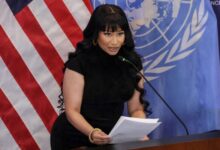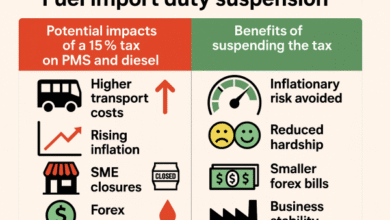Malnutrition impacts women employment prospects, earning potentials, says NGO

The International Society for Media in Public Health (ISMPH) says malnutrition has a huge impact on a woman’s employment prospects and earning potential.
The Executive Director of the ISMPH, Mrs Moji Makanjuola, said this on Sunday in the Kwali Area Council, Abuja, at the end of a three-day training and empowerment of 30 women.
Findings by the News Agency of Nigeria (NAN) reveal that malnutrition currently affects one in two people on the planet.
It is the underlying cause of 45 per cent of deaths in children under the age of five.
Global trends including population growth, changing diets, inequality and climate change are most likely to exacerbate the problem.
According to Makanjuola, women are disproportionately affected by malnutrition, as 60 per cent of the world’s 800 million malnourished people are women, and they are also critical actors in finding lasting solution.
She said that improving women’s social and economic status within their households and the communities had direct impact on food security and nutrition, in particularly on child nutrition.
She said that the European Union (EU) funded the training and empowerment of poor and vulnerable women in the Kwali to combat the menace of child malnutrition.
The Executive Director said that the initiative, which was being supported through the Agents for Citizen-driven Transformation (ACT) Programme of the EU, in partnership with the ISMPH, would bequeath skills to earn income to about 30 women.
She added that it would also teach them about affordable nutritious food options for themselves and their families.
“Women play a critical role in ensuring that their nutritional needs and those of their children and families are met.
“Women are also an integral part of delivering nutrition-sensitive interventions, and optimising food systems to address the double burden of malnutrition.
“The burden is characterised by the co-existence of nutritional deficiencies, underweight, and overweight and obesity in Low and Middle-Income Countries (LMICs),” she said.
She said that the programme trained the women on how to produce organic fertilisers and charcoal, which they can sell to earn incomes.
She said: “This training is a pilot thing that we are setting because we found out that majority of the women whose children come out with malnutrition or severe malnutrition are women who are not gainfully employed.
“They are the poorest of the poor.
READ ALSO:https://brandeconomy.com.ng/justice-tanko-muhammad-resigns-as-chief-justice-of-nigeria/
“The training that we have given is such that they can do it themselves because they are using raw materials that they don’t have to buy. We also have ready uptakers –people who can buy from them.”
The Etsu of Kwali, Alhaji Shaban Audu Nizazo (III), commended the empowerment programme by the EU/ ISMPH.
Nizazo said that the empowerment aimed to improve the status of the people of Kwali, to enable the women provide for themselves and their families.
He said that women were now being elevated socially and economically so that they can be independent and be able to participate in the country’s economy.
Mrs Praise Sunday, a mother of a set of three-year-old triplets, all suffering from malnutrition, said she would now be able to lead her live with more freedom, self-esteem and self-confidence.
Sunday, who spoke on behalf of the 30 women who were empowered, said that empowerment came with self discovery, dignity , financial and social independence and respect.
While commending the organisers of the programme, she urged the Federal Government to increase women empowerment by initiating programmes for women across the country.
(NAN)











